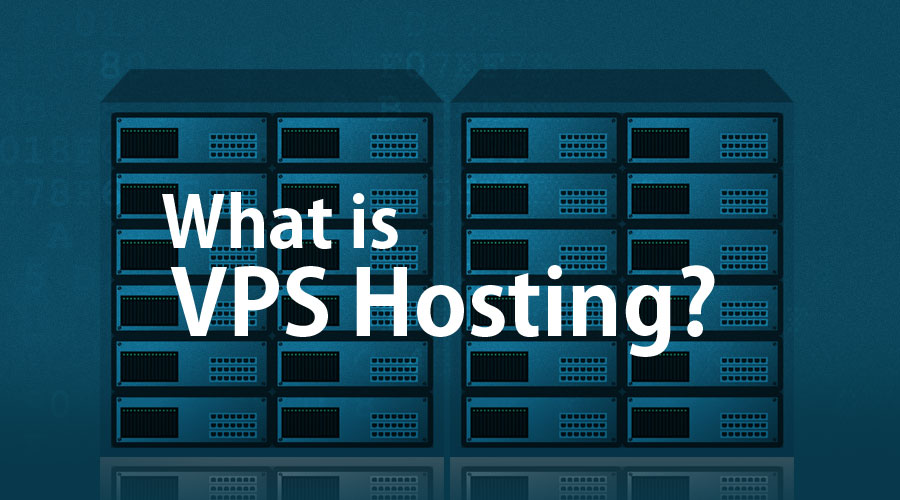
Table of Contents
VPS Hosting (Virtual Private Server Hosting) is a type of hosting where a physical server is divided into multiple virtual servers, each acting like an independent server with its own resources such as CPU, RAM, and storage. VPS hosting offers more control, performance, and security than shared hosting, while being more affordable than a dedicated server. Each VPS runs its own operating system, allowing users full root access to install software and customize their server environment as needed.
Key Benefits of VPS Hosting:
- Dedicated Resources: Unlike shared hosting, you have allocated resources, ensuring consistent performance.
- Customization: Full control over server settings, allowing for custom software installations and configurations.
- Scalability: Easily increase resources like RAM, CPU, and storage as your website grows.
- Isolation: Other websites on the same server do not affect your performance or security.
- Better Security: Offers more robust security features compared to shared hosting, with options for custom firewalls, SSL certificates, and other security protocols.
How to Boost Your Website with VPS Hosting:
- Choose the Right VPS Plan:
- Assess Traffic Needs: Start with a VPS plan that suits your current traffic and business goals but offers scalability for future growth.
- Optimize Resources: Ensure you have enough CPU, RAM, and bandwidth for your website to handle peak traffic and heavy workloads.
- Optimize Server Configuration:
- Use Server-Level Caching: Implement caching tools like Varnish or Redis to speed up load times by storing frequently accessed data.
- Optimize Your CMS: If using a CMS like WordPress, optimize your site by minimizing plugins, using a lightweight theme, and optimizing the database.
- Content Delivery Network (CDN): Integrate a CDN like Cloudflare to serve content faster to global users, reducing latency and load time.
- Improve Security:
- Install a Firewall and Antivirus: Set up a web application firewall (WAF) and install antivirus software to protect against malicious traffic and attacks.
- SSL Certificates: Use SSL to encrypt communications between your website and its visitors, enhancing trust and security.
- Regular Backups: Set up automatic daily backups to safeguard data and ensure easy recovery in case of an issue.
- Monitor Performance:
- Track Resource Usage: Use monitoring tools to track CPU, memory, and bandwidth usage to identify bottlenecks and optimize performance.
- Upgrade Resources as Needed: If your website is growing, upgrade your VPS resources to avoid slowdowns and crashes due to traffic surges.
- Leverage Managed VPS Hosting:
- If you’re not tech-savvy, consider Managed VPS Hosting, where the hosting provider takes care of server maintenance, updates, security, and performance tuning, allowing you to focus on your business.
- Enable Auto-Scaling:
- Auto-scaling allows your VPS to automatically increase resources (like CPU and RAM) when your site experiences traffic spikes, ensuring consistent performance without downtime.
Here are the pros and cons of VPS hosting to help you evaluate if it’s the right choice for your website or business:
Pros of VPS Hosting:
- Dedicated Resources:
- Unlike shared hosting, where resources are shared among all users, VPS provides dedicated CPU, RAM, and storage, ensuring consistent performance.
- Enhanced Performance:
- With dedicated resources and fewer users sharing the same physical server, your website experiences faster loading times, reduced latency, and better overall performance, especially under heavy traffic.
- Scalability:
- VPS hosting is highly scalable. You can start with basic resources and easily increase them (CPU, RAM, storage) as your website grows, without needing to migrate to a new hosting plan.
- Customization and Control:
- You get root access to your VPS, allowing you to fully control and customize your server. This means you can install custom software, configure settings, and optimize the server environment according to your needs.
- Better Security:
- Since each VPS is isolated from others on the same physical server, security breaches or traffic spikes affecting other users won’t impact your website. You can also implement your own security measures like custom firewalls and antivirus software.
- Cost-Effective:
- While VPS is more expensive than shared hosting, it’s significantly cheaper than dedicated hosting while offering many similar benefits like dedicated resources and greater control.
- Flexibility:
- VPS allows you to run any operating system or software that meets your website’s requirements. You’re not limited by the default settings of a shared hosting plan.
- Reliable Uptime:
- VPS hosting usually offers better uptime than shared hosting due to resource isolation, meaning your website will experience less downtime.
Cons of VPS Hosting:
- Higher Cost than Shared Hosting:
- VPS hosting is more expensive than shared hosting, which may not be ideal for small businesses or websites with minimal traffic. It requires a larger upfront investment.
- Technical Knowledge Required:
- Managing a VPS server often requires technical expertise, especially if you opt for unmanaged VPS hosting. You’ll need to handle server configuration, security, and maintenance on your own.
- If you lack server management skills, you may need to opt for Managed VPS Hosting, which can increase the overall cost.
- Limited Resources Compared to Dedicated Hosting:
- While VPS provides dedicated resources, it still shares the physical server with other VPS users. If another VPS consumes too many resources, it could potentially affect your server’s performance.
- For websites with very high traffic or complex requirements, Dedicated Hosting might be a better choice.
- Potential for Over-Allocation:
- Some hosting providers may over-allocate resources (overselling), meaning multiple users are assigned more resources than the server can actually provide, which can result in slower performance during peak usage.
- Complex Setup and Management (Unmanaged VPS):
- Unmanaged VPS hosting puts the responsibility of server maintenance, software updates, security patches, and troubleshooting on the user. This can be challenging without technical knowledge or support.
- Limited Customer Support (Unmanaged Plans):
- Unmanaged VPS hosting often comes with limited technical support. If you encounter server issues, it’s your responsibility to resolve them unless you choose a managed hosting plan.
Conclusion:
VPS hosting offers an ideal solution for websites that have outgrown shared hosting but aren’t ready for a dedicated server. By selecting the right VPS plan, optimizing server configurations, improving security, and monitoring performance, you can significantly boost your website’s speed, reliability, and overall user experience with VPS hosting.
VPS hosting strikes a balance between performance, customization, and cost, making it ideal for medium-sized websites or businesses that need more control and resources than shared hosting can offer but don’t require the full power (or expense) of a dedicated server. However, technical expertise and a higher budget are necessary to fully leverage its benefits.



